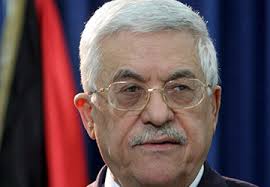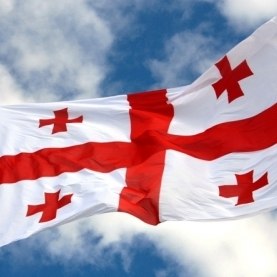Mahmoud Abbas, President of the Palestinian National Authority, recently visited Karachay-Cherkessia, a Russian republic in the North Caucasus, and met with republican head Rashid Temrezov. I asked three prominent experts to comment on the meeting:
Valeriy Dzutsev, North Caucasus analyst –
Mahmoud Abbas' visit to Karachay-Cherkessia shows that Moscow would like to make use of its allies in the Middle East to pacify the North Caucasus. The ideal figure for such a role is ostensibly pro-Russian and religiously not Orthodox. The criteria for acceptable foreign visitors to the North Caucasus is thus so narrow that there will never be too many of them. Another important feature in the pattern of foreign visits to the North Caucasus is that Moscow promotes the visit of moderate leaders from Islamic countries, while at the same time barring Westerners, associated with the danger of democratization, "Orange Revolution," and separatism, from having contacts in the region. It seems as if Moscow prefers the North Caucasus to have ties to the Islamic world than to encourage democratization which, in the minds of Russia’s leaders, inevitably leads to separatist demands.
Boris Urusiv, journalist, IA REGNUM –
Mahmoud Abbas has visited Russia about ten times, including to Tatarstan, Bashkortostan, Dagestan, Chechnya, and Chuvashia. On this latest visit, the Palestinian leader was awarded with medals and visited tourist sites and some prosperous companies. Though it has been declared that Palestine and Karachay-Cherkessia will interact in the economic sphere, no documents for economic partnership have been signed. It seems that the only real impact of such a meeting is in the context of Russian policy in the Middle East. I see it as a message from the Kremlin to Arab states – Russia is showing off its policy towards its Muslim minority to a distinguished representative of the Arab elite. That is why the Kremlin choose Karachay-Cherkessia, the most stable region in the North Caucasus, which does not have a radical Islamic insurgency and where the Kremlin has invested successfully in local business, including building the Arkhyz resort. The visit also enables Moscow to demonstrate support for Palestine in its conflict with Israel, which is supposed to balance the differences that the Kremlin has with most Arab regimes concerning the Syrian crisis. Reminding observers about Russia’s traditional support to Palestine, Moscow shows that it is still a friend to the Arab world, in spite of disagreement on the Syrian question.
Akhmet Yarlykapov, senior scholar, Institute of Ethnology and Anthropology, Russian Academy of Sciences –
It is not the first time that Mahmoud Abbas visited the North Caucasus. During his visit to Dagestan in 2009, Abbas stressed the religious similarities that connect that republic to the people of Palestine. We also have to keep in mind the presence of the rather influential Middle Eastern diaspora of Circassians and other North Caucasians, which might also attract Abbas’ attention to the region. In general, cultural connections between Palestine and the North Caucasus – and Russia’s moral support for Palestine – appear more serious than any anticipated economic partnership between Palestine and Karachay-Cherkessia.











